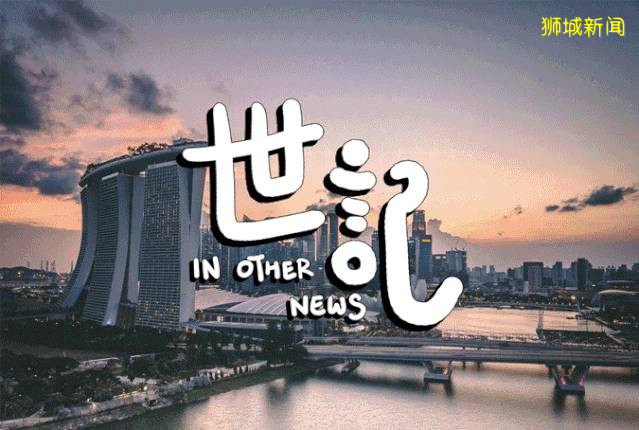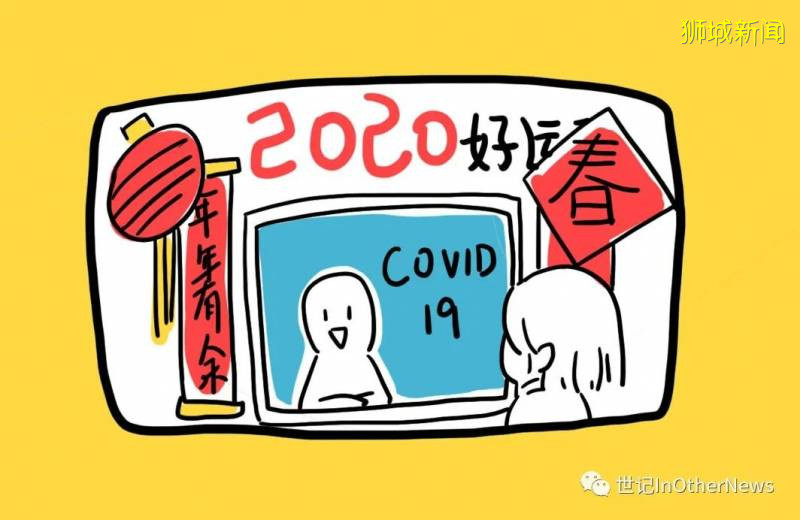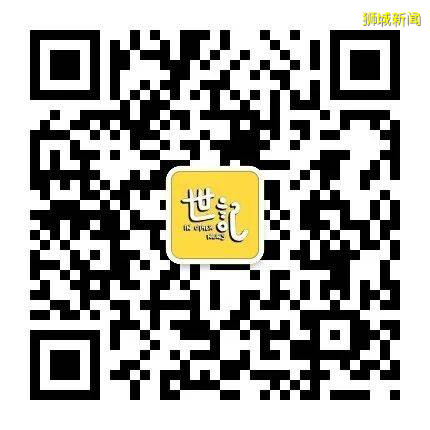
回”家“ 疫情之下的回坡日记 Going “Home”: An Expatriate’s COVID-19 Travel Diary

国内疫情刚刚发展起来的时候我刚从新加坡回到沈阳过年。当时新加坡疫情还不太严重,虽然二月份开始收紧对短期游客签证的发放,不过政策整体上还是比较佛系。再加上我拿的是较长期的工作签证,所以并没有很担心回坡入境的问题。没想到后来回新加坡的计划经历了一波三折,折腾了好几个星期才顺利回坡。
I was on vacation in my hometown in Shenyang, China when COVID-19 began spreading through China around the Lunar New Year.
At the time there were only a handful of confirmed cases in Singapore, where I’ve lived and worked for the past four years. Back then, the Singaporean government had adopted a rather hands-off approach towards the virus, which had yet to be declared a pandemic. I was not worried about my trip back to Singapore, as I hold a work visa in a famously business-friendly country.
在计划回新加坡的前两天晚上,新加坡突然出台了政策,要求所有入境十四天前在中国境内逗留过的工作签证持有者都要通过所在单位向人力部(MOM)提交申请,收到批复后才可以入境。我记得特别清楚,政策是周五晚上出台的,而我原定的航班在周日。周末MOM不接受和审批申请材料,我当下就明白自己肯定是无法按照计划回坡了。
But two days before my scheduled return, the Singaporean government announced a new policy regarding the re-entry of residents holding work visas. hose seeking to enter the country now needed to apply, via their employers, for entry approval from the Ministry of Manpower, in whose hands the fate of travellers now lie.
Immediately, I had to cancel my flight, then scheduled on a Sunday, as the MOM did not process applications on weekends.
这项申请并不是单纯填张表那么简单,除了在职证明,还需要我在新加坡的房东同意书,表示同意我落地新加坡之后的14天在他的房子里自我隔离。了解了这一系列要求之后,我就开始连轴转了:一边联系公司和房东收集材料,一边还得联系航空公司改签机票。那个时候,从沈阳直飞新加坡的航班都已经停飞。经停首尔或者东南亚其他国家也不可行,因为基本所有海外机场已经开始禁止过去14天在中国逗留过的人中转或过境了。万幸的是,当时国航还剩下一班经停成都的航班,我在庆幸之余,立即着手办理改签。
The application process was itself a labyrinthine endeavor. In addition to an application form, I had to provide a reference letter from my employer and an approval letter from my landlord in Singapore demonstrating his willingness to let me stay for the 14-day quarantine upon my return.
而改签机票的过程也是多舛。国际机票改签只有打电话这一个途径。那段时间因为疫情改变旅行计划的旅客太多,国航的服务电话每天都爆满,我只好挑人最少的半夜试试运气。一直到了周日凌晨五点终于打通。总算在原定航班起飞前将机票改签到了下周四。
Facing this bureaucratic bombardment, I had no time to chafe. I immediately busied myself with phone calls and emails to the relevant parties, taking pains to change my flight as well.
Booking the flight was another palpitating endeavour — especially when flying from Shenyang, a city with limited flight options to Singapore. It took awhile, but finally, I got the documents and flights settled — I was ready to leave, or so I thought.
当时直接定了下周四的机票有两个原因。一是出国的航班每天都在收紧,美国禁止中国护照入境航班停飞的例子就在眼前,总怕哪天仅剩的几条新加坡航线也要彻底停飞,所以很着急地想要敲定新的行程。二是当时还天真地以为申请只是走个过场。毕竟材料齐全,预留MOM官方宣布的两天工作日审核时间,我应该会在周四之前收到申请的批复。
Without hesitation I booked the next flight available, scheduled for the following Thursday. I was afraid that if I delayed my return I may not be able to fly back as flights were being cancelled by the day. Also, I was quite confident (or naïve, in retrospect) that I could get approval on Monday because I had already prepared the required documents.
但2020好像从不按常理出牌,做好准备周四要回新加坡了,却在周三收到公司邮件说我的入境申请没有通过。MOM拒信没有说明哪个条件不符合或哪个材料需要补交,只是单方面告知结果并且没有提及对此结果的疑问或上诉。
But 2020 never fails to surprise! When I was getting ready for the rescheduled flight on Wednesday, I was informed that my application was rejected without further explanation.
收到拒信的我一头雾水,赶紧上网去查了一下,据说确实有大量的申请未被批准。新加坡政府声明说这是为了控制回坡的人流,被拒绝者可以再次申请。从政府的角度考虑,也许这是一种行之有效的限流方法,但是对于我们这样“被限流”的申请者,一种束手无策感油然而生,不知道要怎么修改自己的申请才能增加一些通过的筹码。
I could not make sense of it at all. The Singapore government then clarified that this was to split the returnees into smaller groups for better monitoring and management. Those who were rejected could apply again. Perhaps this did achieve its objective in downsizing the streams of people returning, but for rejected applicants like myself, it left us feeling lost and helpless. I could not figure out what I should do to increase my chance of getting approved for my second (and god forbid third or fourth) application(s).
即使幸运通过了申请,这项审批结果也只有三天有效,这意味着申请者如果不在收到批准邮件的三天以内进入新加坡的海关,入境许可就会自动失效。可是就像第一次改签一样,即使不考虑最后一分钟订机票的成本问题,在像我所在的非一线城市买到一张符合三天内入境时间的机票难度也远远大于平时。
Even if I had gotten approval, it would only have been valid for three days. This means the applicant may not be able to return if they fail to book a flight within that window. Amidst the flight cancellations and soaring prices of the pandemic, the three-day rule added fuel to the fire of my anxiety.
但是神奇的2020年里真的什么事情都可能会发生,基本不太抱希望的第二次申请竟然毫无预兆地通过了。虽然机票再次改签已成奢侈,我也非常幸运地在三月份中国新加坡全部航班停飞前,买到了最后几班的机票。但是看着新加坡几个微信公众号的读者留言,大部分人没有我的这种幸运,好几次申请无法通过或著无法在规定时间内返回新加坡的居民大有人在。
But 2020 would surprise me again. Just as I had been mysteriously rejected, however, I submitted my application again and was lo and behold, approved to return home! I was even fortunate enough to secure one of the last flights before all transit between China and Singapore was terminated in March. I was one of the few lucky ones – I later learned that there were many others who failed to get MOM approval or secure flight tickets after multiple attempts.
几经周折,总算顺利回坡,在住处开始了十四天大门不迈的隔离生活。作为从中国回来的重点监测对象,基本每天都会有MOM的工作人员打视频电话给我。据说如果没有及时接电话证实自己乖乖坐在家里的小板凳上,还有可能被吊销工作签证。
I made my way back to Singapore eventually and began my mandatory 14-day home quarantine. In stereotypically Singaporean fashion, I was closely monitored during this time: Government officials checked in daily via video calls. I was told ominously that my work visa could be revoked if I failed to answer the calls promptly.
在家隔离的日子一直在想,不同国情下国家政府和居民(从公民的角度又是另一回事)间最有效的信任关系应是怎样的。诚然,在这样的特殊时期,疫情的严格防控无法单纯建立在信任的基础上。
Quarantine gave me ample time to ponder how an effective trust relationship should be established between governments and foreign residents (though a citizen’s perspective would likely be different). Governments cannot ensure people’s safety during such an unprecedented public health crisis by simply trusting that everyone will behave sensibly.
确实也有很多在隔离期出门被抓到了的案例。不过这也说明即使有每天不定时视频电话的牵制,也无法完全保证接过电话的人不会出门。因此,这些措施本质上是防君子不防小人,但从效果上来看,这项政策恐怕既让君子体会到了不受信任的感觉,又没能填补小人可以钻的空子。而且,在那疫情开始发展的几个月里,公共机关每个人手都如金子般珍贵。在这样的情况下,让政府工作人员给在家隔离中的几百上千号人进行每天五分钟的视频通话是不是最行之有效的办法,在我看来还是有待商榷的。
There were cases of people caught wandering around the streets and putting others at risk when they were supposed to be in quarantine. However, the existence of such rebels also means that even if people in quarantine were spot-checked every day, they could still break the rules if they so intended At the end of the day, policies like this seem to only discipline those who are already disciplined. What is worse is that the reasonable and disciplined might feel a lack of trust from this measure, while the rule breakers would still get their opportunities to go out in between the video calls. Therefore, I’m not sure whether these daily five-minute calls to thousands of quarantined individuals is the most effective measure. Moreover, the time spent by MOM staff in conducting the calls must be a precious resource for the government during such a crisis.
同样,单方面宣布拒绝与否,不提供任何沟通渠道和调整日程的空间,新加坡政府让特殊时期因为各种各样的家庭和工作原因想要尽快回到新加坡的长期居民更加焦灼。如果是为了人群的分流,我不太清楚新加坡为什么没有采取批准合格的申请但是安排申请者不同入境时间的方法。这样政府可以规划每天入境人流量的同时,让申请者可以更好地安排交通与住宿。单方面通知拒绝或是限时许可,意味着特殊时期的每个入境申请者的旅行安排都面临很大压力。
Similarly, the one way communication of both the MOM rejection and the non-negotiable three-day limit certainly did not help already uneasy and anxious travelers during a looming pandemic (COVID-19 was officially declared a pandemic on 12 March). I wondered why other more accommodating policies were not adopted. Qualified applicants could, for example, have been granted the approvals that they deserve while also being assigned specific time periods for entry.
从我二月末回到新加坡到现在已经将近五个月,而后来的新加坡又经历了疫情的高速蔓延和封城阻断。现在正在解封的第二阶段,很多限制措施正在逐步放宽,不过最近疫情又出现了反弹。我相信我们总会找到对抗疫情的更持久解决办法,但希望在这次危机中暴露出来的一些沟通与信任的缺失不要在未来一切走向新的平衡的时候被遗忘。
It has been more than five months since I returned to Singapore in late February. During that time the country experienced soaring infection rates and subsequently implemented a national circuit breaker. Although the situation has not yet stabilised, I believe we will eventually find a way to sustainably cope with the pandemic. However, I hope that we will also take time to reflect on the long overlooked issues of communication and trust exposed by the crisis, even after we finally adjust to the post-pandemic “new normal”.
面对疫情防控的压力,国家对个人的保护和支持显得愈发重要,因此有许多人认为这场疫情带来了“国家集体主义的回归”。值得注意的是,不同个体获得的保护和支持并不相同,保护支持的具体内容、方式形式取决于个人和集体之间的关系。
The COVID-19 crisis, many argue, has led to the “return of the state”. During a crisis, one as multifaceted and all-encompassing as this one, the state’s provision and protection become ever more essential. But that provision and protection is selective, determined by our relationship to the state. No wonder then, that the pandemic has left migrant communities disproportionately affected.
新加坡政府的相关政策就是一个例子。其保护和支持的资源分配主要基于财务和经济上的考量,忽视了很多外籍居民的权利。由此也带来诸多问题,例如对被社会边缘化的客工的忽视。而这一忽视对新加坡的抗疫造成了巨大的影响——直接使之从抗疫模范变成了东南亚首个病例破万国家。详见我们两周前的推送(新加坡:防疫“典范”的盲点)。随着情况的恶化,新加坡政府“保护和支持”的排他性也越发明显。
Singapore, for instance, offers protection in a calculated, almost mercenary, manner. The city-state’s neglect of its foreign workers, who’ve lived on the periphery of society, gained Singapore yet another accolade — from author of the world’s “COVID-19 Playbook” in February to Southeast Asia’s largest COVID-19 hotspot by April 2020. As the situation deteriorated, it became clear that the state’s full protection extends only to a select group: Citizens and Permanent Residents.
就连作为高端人才在新加坡留下工作的外籍居民也直观地感受到了这样的排他性。当然,这不是新加坡独有的现象,其他国家,例如日本和新西兰也限制了持有工作签证、为其纳税的外籍居民的入境。
Thus even “expatriates”, the highly mobile, “highly-skilled” migrants, have felt the squeeze. This is by no means a Singaporean phenomenon: countries from Japan to New Zealand have closed their doors not only to travellers but to visa-holding, tax-paying residents.
在前两周的推送里,我们聚焦了新加坡低收入客工群体的困境;这周,我们把目光转向一位在新加坡工作的中国籍“高端人才”Rae的故事。因为疫情突如其来的层层阻碍让Rae深刻感受到了她作为外籍居民这一身份的脆弱,以及相关的信任、沟通、约束等一系列问题。也促使我们更全面地反思由科技进步和全球化所成就的劳动力流动性和其背后的脆弱性。
While our story previously focused on the plight of Singapore’s low-wage foreign workers, today we visit the story of Rae, a Chinese national who works in Singapore. Rae’s difficult return saw her reflecting upon issues of trust, communication, and governance. It also calls into question the myths and promises of human mobility, which has long been touted as a great accomplishment of our technological advancement and capitalist globalisation.
